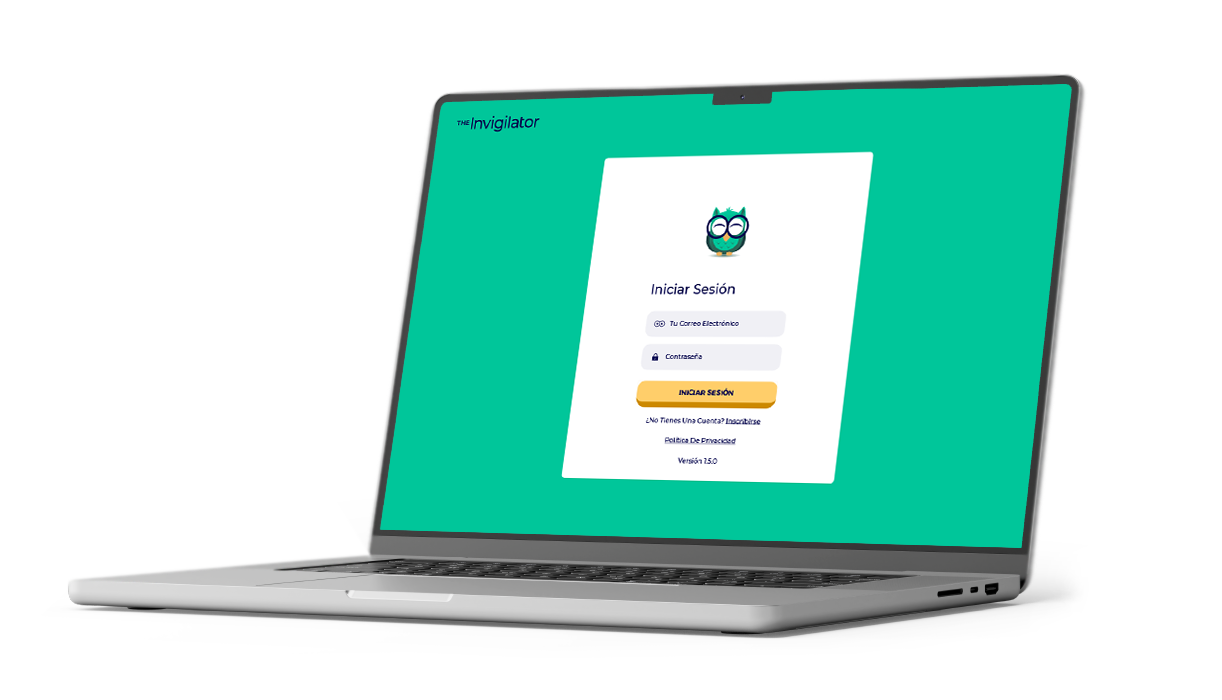How AI is Revolutionising Online Proctoring in Education
The rapid rise of artificial intelligence (AI) is transforming various sectors, and education is no exception. As digital transformation reshapes the way we approach learning and assessments, AI has emerged as a powerful tool for enhancing online proctoring systems. These systems ensure academic integrity and exam security in remote and online environments, addressing the challenges that traditional exam monitoring methods face.
Online proctoring solutions, empowered by AI, have become a cornerstone for institutions that need to maintain exam fairness while allowing students the flexibility of remote assessments. In this article, we will explore how AI is revolutionising online proctoring in education, focusing on its impact on exam security, its applications, and its potential for the future.
1. The Rise of AI in Education
AI has rapidly gained ground in education, revolutionising everything from personalised learning tools to administrative systems. In the context of assessments, AI is playing an increasingly important role in maintaining the integrity of online exams. As educational institutions around the world adopt remote and hybrid learning models, the need for secure and reliable exam monitoring solutions has grown exponentially.
Traditional exam proctoring involved physical invigilators monitoring students in a controlled environment. However, with the rise of online learning, institutions needed a solution that could replicate the security of in-person exams in a virtual setting. This is where AI-based online proctoring solutions have stepped in, providing a way to monitor students remotely while ensuring exam integrity.
2. How AI Enhances Exam Security
One of the primary benefits of AI in online proctoring is its ability to enhance exam security. AI-powered proctoring tools use sophisticated algorithms to detect any irregularities or suspicious behaviour during exams, such as unusual eye movements, multiple people in the room, or unauthorised materials on the desk. These systems can identify potential cheating attempts in real-time and alert human proctors, allowing them to intervene if necessary.
AI also helps automate the exam monitoring process, reducing the need for constant human oversight. Instead of having an invigilator watch each student throughout the exam, AI can flag specific moments of concern, allowing human proctors to review only the segments that require attention. This significantly improves efficiency and reduces the workload on invigilators.
Key Features of AI-Powered Proctoring:
- Facial Recognition: AI uses facial recognition technology to verify the identity of the student before and during the exam, ensuring that the person taking the test is the registered student.
- Behaviour Analysis: AI monitors student behaviour, analysing patterns such as head movements, facial expressions, and eye gaze to detect potential cheating.
- Real-Time Alerts: AI systems can provide real-time alerts if they detect suspicious activity, enabling human proctors to take immediate action.
3. The Benefits of AI-Based Proctoring Solutions
AI-driven proctoring solutions offer several benefits to both educational institutions and students. Below are some of the key advantages:
1. Increased Accuracy: AI algorithms can detect subtle changes in student behaviour that may indicate cheating, such as frequent eye movement or someone speaking in the background. These tools offer a level of precision and consistency that human invigilators may struggle to achieve.
2. Scalability: Online proctoring systems powered by AI are highly scalable, making them suitable for large-scale exams with thousands of students. Institutions no longer need to worry about having enough invigilators to monitor exams, as AI can handle a significant portion of the process.
3. Cost-Effectiveness: While traditional in-person exams require logistical arrangements and invigilators, AI-based proctoring reduces costs by automating much of the process. Educational institutions can save resources while ensuring a high level of security.
4. Flexibility for Students: AI-based proctoring allows students to take exams from the comfort of their own homes, offering flexibility in terms of time and location. This is particularly beneficial for international students or those in remote areas.
5. Data-Driven Insights: AI proctoring tools provide data and insights that can be used to improve future exams. Institutions can analyse student performance and behaviour to identify areas of concern or trends that need to be addressed.
4. Overcoming Challenges with AI in Proctoring
While AI-based proctoring offers many benefits, there are also challenges that need to be addressed. One of the main concerns with AI in education is data privacy. As AI systems collect and analyse large amounts of data during exams, institutions must ensure that student data is protected and that proctoring tools comply with privacy regulations such as the General Data Protection Regulation (GDPR).
1. Data Privacy and Compliance: Educational institutions must work closely with proctoring solution providers to ensure that all data collected during exams is stored securely and used only for its intended purpose. Transparency with students about how their data is being used is essential to maintaining trust.
2. False Positives: AI systems, while highly accurate, are not infallible. There is a risk of false positives, where the system flags legitimate behaviour as suspicious. To mitigate this, human proctors should always review AI-generated alerts before taking action.
3. Accessibility Concerns: AI proctoring tools must be accessible to all students, including those with disabilities. Institutions should ensure that the proctoring software they use complies with accessibility standards, such as providing options for students who may not be able to use biometric verification or eye-tracking technologies.
5. The Future of AI in Proctoring and Education
The future of AI in proctoring and education is promising, with advancements in technology expected to make online exams even more secure and efficient. As AI continues to evolve, it will play a more prominent role in personalising learning experiences, automating administrative tasks, and enhancing security in online assessments.
AI-Powered Adaptive Assessments:
In the future, AI may be used to create adaptive assessments that adjust to a student’s performance in real time. This would allow for a more personalised exam experience, where questions become more difficult or easier based on the student’s responses.
Blockchain for Exam Security:
Another potential development is the integration of blockchain technology to enhance exam security. Blockchain can create tamper-proof records of exam data, ensuring that all exam processes are transparent and secure.
AI-Driven Feedback:
AI could also be used to provide real-time feedback to students during exams, helping them improve their performance and learning outcomes. This could be particularly beneficial for formative assessments, where the goal is to support learning rather than simply evaluate knowledge.
Conclusion
AI is revolutionising online proctoring in education, offering institutions a powerful tool to ensure exam security and academic integrity. From real-time monitoring and facial recognition to behaviour analysis and scalable solutions, AI is transforming the way online exams are conducted. As AI technology continues to advance, the future of online assessments looks even more promising, with adaptive assessments and blockchain offering new possibilities.
Educational institutions looking to implement AI-powered proctoring solutions can benefit from improved security, cost-effectiveness, and scalability. The Invigilator App is at the forefront of this transformation, providing secure, AI-driven proctoring tools that meet the needs of modern education.
If you’re ready to enhance the security of your online exams and embrace AI-powered proctoring, The Invigilator App is here to help. Contact us today to learn more about how we can support your institution.
FAQs and Answers
- How is AI revolutionising online proctoring?
AI enhances exam security through facial recognition, behaviour analysis, and real-time alerts, replicating in-person invigilation digitally. - What features do AI proctoring tools offer?
Key features include facial recognition, real-time monitoring, screen activity tracking, and behaviour analysis to detect suspicious actions. - Can AI improve the accuracy of online proctoring?
Yes, AI algorithms detect subtle behavioural patterns, providing higher precision and consistency than traditional human invigilators. - How does AI make online exam monitoring scalable?
AI systems can manage thousands of students at once, reducing the need for a large number of human proctors. - Is AI-based proctoring cost-effective for institutions?
Absolutely. Automating the proctoring process cuts costs on human resources and physical logistics while maintaining exam integrity. - How does AI handle data privacy in online proctoring?
Proctoring platforms using AI must comply with GDPR and store data securely, ensuring student privacy is protected. - What challenges are associated with AI proctoring?
Common issues include false positives, accessibility limitations for students with disabilities, and concerns about data usage transparency. - What is the future of AI in exam security?
AI will soon enable adaptive assessments, blockchain-secured records, and real-time feedback for students during online exams.









